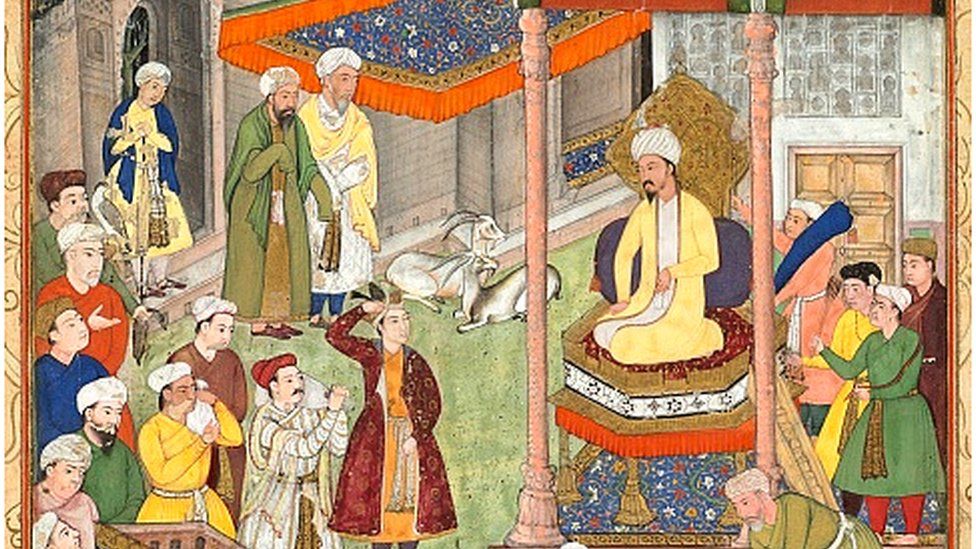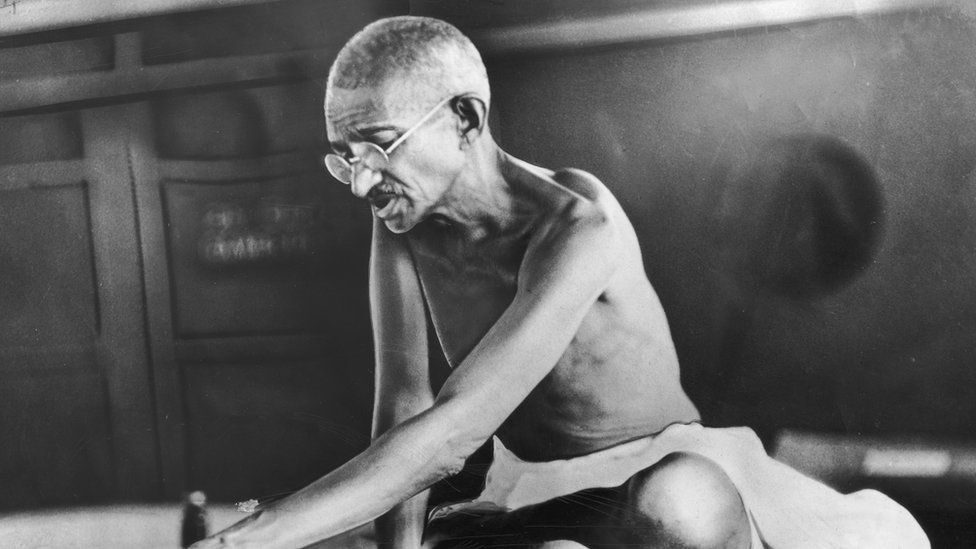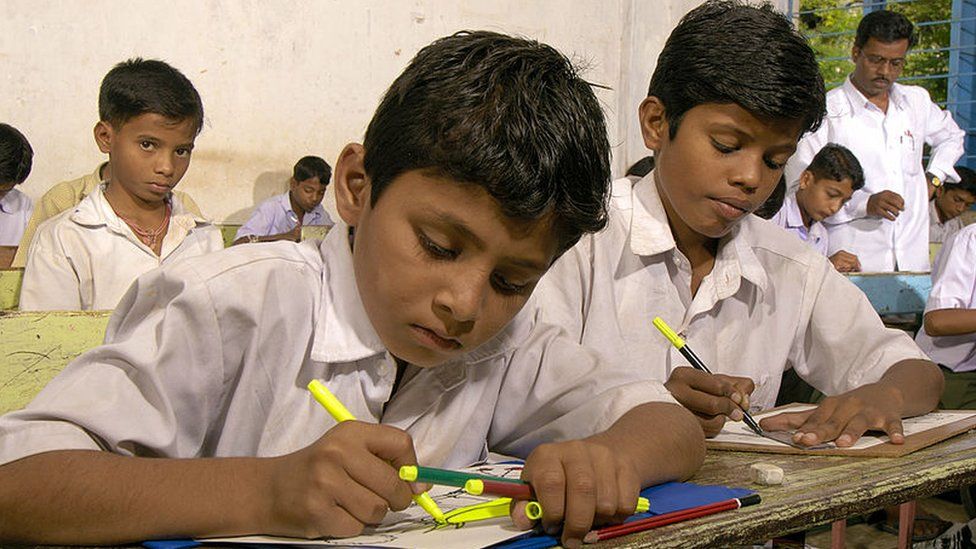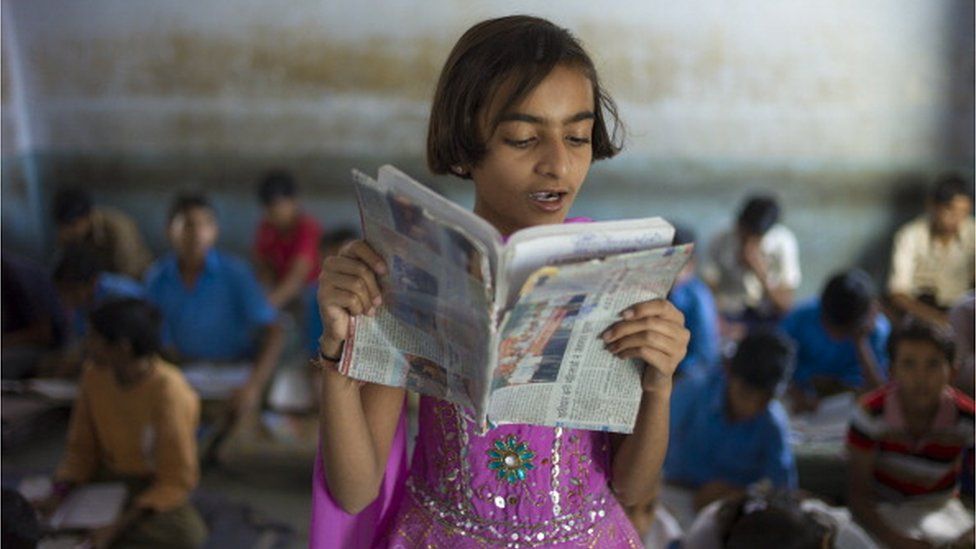A textbook's true owner is still unknown.
In India, a debate over the subjects that students are taught in school has been raging for weeks due to reports that some of the subjects had been removed from their textbooks.
The textbooks were released earlier this year by the National Council of Educational Research and Training (NCERT), and more than 20,000 schools have already started using them. For kids taking exams through the government-run Central Board of Secondary Education, the NCERT, an independent organization under the federal education ministry, oversees syllabus changes and textbook content.
Dropped subjects include chapters on federalism and diversity, as well as paragraphs on attempts to kill Mahatma Gandhi by extreme Hindu nationalists.
Other controversial changes made by the NCERT include the removal of material pertaining to the 2002 Gujarat riots, the deletion of a chapter on Indian Mughal emperors, and the promotion of material on the periodic table and the theory of evolution to higher grades.
The council had earlier claimed that the modifications, which were initially announced last year as part of a syllabus "rationalization" exercise, wouldn't affect knowledge but would instead lighten the burden on young students in the wake of the Covid-19 pandemic.
However, some academics who were a part of the teams that developed the older textbooks now claim they don't want to be associated with the new program.
Suhas Palshikar and Yogendra Yadav, two political scientists who served as advisers for political science textbooks for classes 9 through 12 that were first published in 2006, wrote to NCERT on June 8 to request that their names be removed from both the print and digital versions of the textbooks.
The academics claimed they took issue with the "innumerable and irrational cuts and large deletions" because they could find "no pedagogic rationale" to support the modifications.
Since it owns the copyright to everything it publishes, the NCERT declared in a statement that such a request "was out of the question.". When contacted by the BBC, NCERT director DS Saklani directed them to the organization's website's statement.
When more than 30 academics wrote to NCERT last week asking for their names to be removed from the Textbook Development Committees (TDC) listed in the books, the impasse reached a breaking point. The academics contended that just because the NCERT had copyright, it didn't give them the right to alter the texts they had written.
The TDC's role, however, was "limited to advising how to design and develop the textbooks or contributing to the development of their contents and not beyond this," according to NCERT.
A new set of textbooks will soon be created using new guidelines that follow the new National Education Policy, it was also made clear that the rationalized content is only applicable for the current academic year.

Academics are at odds with one another because of the debate. The Bharatiya Janata Party, which is currently in power and is a Hindu nationalist organization, has been accused by critics of erasing material from NCERT's textbooks that is unpalatable to them. According to Peter Ronald DeSouza, who asked to have his name removed, "the decision of 'rationalisation' shows either that the NCERT does not value its autonomy or that its leadership does not understand its place in a democracy," he wrote last week.
However, support has also been given to NCERT. In a statement last week, 73 academics argued that outdated school textbooks should be replaced immediately.
"[The critics'] demand is that students continue to use outdated textbooks from 17 years ago rather than more recent editions. They claimed that in order to further their political agenda, they were willing to jeopardize the future of millions of children nationwide.
Among the supporters are the president of India's esteemed Jawaharlal Nehru University (JNU) and the head of the nation's university watchdog, the University Grants Commission (UGC).
As long as scrutiny is supported by concrete facts and evidence, it should be praised. The vice chancellor of JNU, Santishree Dhulipudi Pandit, wrote that the media amplified a lot of "unverified information" on the matter. She claimed that selective reading and mischaracterization do not foster transparency or accountability but rather undermine them.
Textbook revision debates are not new in India; both nationally and at the state level, various governments have frequently tried to introduce or withdraw changes in accordance with their ideological convictions. In order to keep information current and strike a balance between content and learning objectives, the majority of scholars also support routine book reviews.

The critics contend that this review needs to be transparent and all-encompassing.
"Textbooks, as the term implies, have a special place in the educational system. They serve as the teacher's and the student's first authentic source for guidance on how to approach a subject, according to Mr. Palshikar.
Numerous schools all over the country use the NCERT textbooks, which are subject to intense scrutiny. Candidates who are taking competitive exams consult the books as well. The catchment area for these books is vast, so Mr. Palshikar concludes.
According to experts, the purpose of any thoughtfully created curriculum is to immerse students in subjects that elicit discussion, allowing them to encounter questions that are relevant to both their lives and their other coursework.
However, when paragraphs and sentences are "indiscriminately deleted," the textbook's argument loses continuity, which severely impairs the learning process, according to Mr. Palshikar.
He continues by saying that because it is unclear how the NCERT's consultation process was conducted, they are also against the current deletions. "Our only complaint is that if you consulted anyone else, list their names on the book rather than ours. ".

The NCERT claims to have enlisted the help of internal faculty members and outside experts to assess the disputed books; these individuals ultimately suggested the changes. .
The process took into account five broad criteria: difficulty levels; content that is easily accessible to children; and content that "does not require much intervention from the teachers." These criteria were: content overlap between different subjects in the same class; similar content in the lower or higher class in the same subject; and difficulty levels. Content "that is not relevant in the current context" is the final category.
In an article published in the Indian Express, four members of the Council's textbook team stated that pertinent information that was either removed or rationalized has now been added, "either in the same subject in different classes or in a different subject in the same class.".
Therefore, the periodic table has been moved to the Class 11 textbook rather than being entirely removed from the Textbooks for Classes 9 and 10. The study of Mughal history is still covered in the curriculum. Chapter 6 of the textbook for Class 12 also discusses Darwin's theory of evolution.
No scientific theory is infallible; it can be refuted. The most recent discussions that have called into question Darwin's theory of evolution need to be covered in the curriculum, according to Ms. Pandit from JNU.
However, some experts believe that such "arbitrary" changes actually cause more harm than good.
Even Mamidala Jagadesh Kumar, the head of the UGC, who is largely in favor of the rationalization exercise, concurs with some of the criticism, particularly with regard to teaching science.
He wrote this week, "The global practice is that topics like evolution, the periodic table, and sources of energy are taught to students before they complete 10th standard, but the intentions of the NCERT shouldn't be questioned.".
The debate, according to Mr. Palshikar, is taking place amid a larger upheaval in India's publicly funded education system.
"I believe that the pressure to succeed in the job market has caused higher education in India to lose its soul for a long time, especially in the humanities and social sciences. The fundamental goal of higher education—questioning and exploring—has been forgotten, he claims.
"In comparison to that, we are currently having a very minor debate. ".
the YouTube channel for BBC News India. Click . here. to subscribe and watch our explainers, features, and documentaries.







